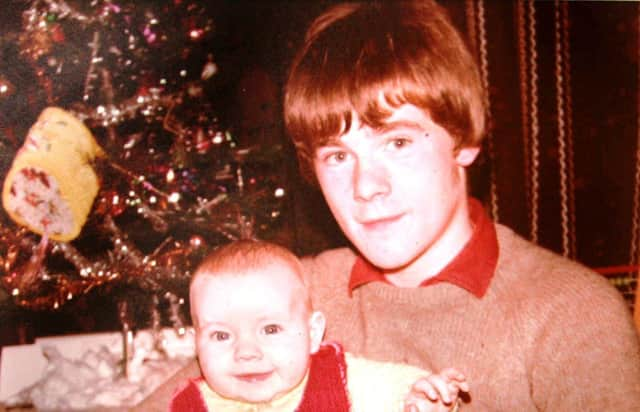Derry plastic bullet victim’s family says its trauma has been ‘compounded’


Paul Whitters was just 15 years old when he was shot in the head with a plastic bullet in April 1981.
The incident followed a day of rioting in Derry during the Long Kesh hunger strikes. Paul was throwing stones when he was shot by a police officer at Great James’ Street.
Advertisement
Hide AdAdvertisement
Hide AdHe survived for 10 days before a decision was made to remove him from life support.
Last week, the Northern Ireland Office (NIO) said it had released more information publicly, via the National Archives, regarding the case of Paul Whitters.
In a statement, NIO Secretary Brandon Lewis described the schoolboy’s death as a “tragic incident” in which a “young person lost his life needlessly”.
The government said its decision to release “more information” followed concerns raised by the family in addition to its commitment to “helping families uncover more information about what happened to their loved ones during the Troubles”.
Advertisement
Hide AdAdvertisement
Hide AdIn response, Paul Whitters’ sister, Emma, said that, since the family discovered the existence of a file relating to his death in the National Archives more than five years ago, it had lobbied to have it opened before the NIO release date of 2059.
She added: “It has been a long road of contradictory information, fruitless meetings and bureaucratic dead ends. And, at the root of all this, there is the constant question of why the state would seek to hold the file closed. What possible issues of national security could relate to my 15-year-old brother - a schoolboy?”
She accused the government of “making much” of its commitment to information recovery.
“Yet, for our family, information recovery has meant a Freedom of Information request which resulted in the release of a heavily redacted file. The remainder of the file was closed for a further 25 years, at which point, I’ll not be here. Paul’s dad has already passed away without having seen this file.”
Advertisement
Hide AdAdvertisement
Hide AdEmma Whitters criticised the recent NI Troubles (Legacy and Reconciliation) legislation which, she said, ‘will deny families across the board access to justice’.
She also said questions must be asked about how new information on her brother’s death can be so easily released a number of weeks ‘after recourse to justice is off the table’.
Emma Whitters said that, at this point in time, it was her understanding the file remained closed. “We haven’t had sight of it and, so, reserve judgment on the content until we have had access,” she said. “Brandon Lewis is talking about information recovery and its role in reconciliation. Our experience of ‘information recovery’ has, if anything, further compounded our trauma and calls into question the government’s commitment to anything approaching reconciliation.”
Sara Duddy, of the Pat Finucane Centre, which has been supporting the Whitters, also voiced concerns over the timing of the NIO announcement.